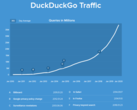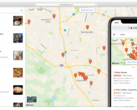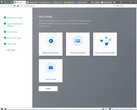If you’re a Chrome user, you might want to consider switching browsers.
The latest version of Chrome (Chrome 69) will automatically log users into the browser if they log into any Google service (e.g., Gmail, YouTube, etc.). While that in itself may not trigger any alarms, the feature is automatic with no confirmation needed by the user. In other words, Chrome will automatically log you into the browser and won’t tell you it did.
Logging into the Chrome browser allows you to use lots of various features, but it also allows Google full access to your browsing history and usage habits. While Google responded to critics that called this practice “intrusive” (among other things), the company’s explanation is a bit scant.
Cryptographer Matthew Green is one of the loudest critics of the update and reached out to Google to explain their motives behind automatically logging users into Chrome without notifying them. Google’s response pointed out that this login didn’t automatically turn on the data sync feature, which means that Chrome won’t automatically pass a user’s browsing data through Google’s servers. The company apparently included the automated logins to streamline the process of logging into Google services (Chrome included), as well as preventing confusion between Google users on shared devices.
Green and other critics are crying foul, saying that this practice restricts choice for Chrome users. While people may not mind trading off their data for the use of services like Gmail, some may want to keep their browsing history out of Google’s sights entirely by not logging into Chrome. By automatically logging users in and not notifying them, Green says that this presents a “dark pattern;” since Chrome effectively eliminates the choice of logging into the browser in these use cases, what’s to say that they may automatically enable Chrome’s sync features in the future? According to Green (and many, many other critics), this move could be a possible launchpad for a full-fledged covert invasion of privacy in the future.
While this practice is something serious to keep in mind in our modern era of data-driven connectivity, Google is technically well within its rights to do it. The biggest problem is informing their users about the login, but that may be covered under Google’s Terms of Use. After all, Google’s services (Gmail et. al.) and Chrome are owned fully by Google, which is a private company selling a product. The automatic login is not’ necessarily illegal, so Google can do this without much recourse.
The easiest way to circumvent practices like this is to use alternative services, but that’s easier said than done. Google’s services are among the most prolific on the internet in their respective product categories, so escaping the net of the search giant can take quite a bit of effort. However, open-source products like Firefox, DuckDuckGo, and others tend to value user privacy, and it’s much harder to sneak practices like this into those services since the source code is accessible to the public. If you are concerned about Google’s new policies and practices, it may be time to switch.







































